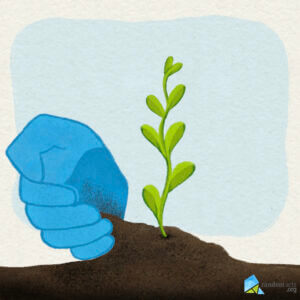The food equity and global hunger arena offers an array of terminology — food equity, food sovereignty, food justice, and urban farming are some of the most common terms. The realization of these concepts would create a world in which everyone has access to healthful, affordable, and culturally-significant foods.
To that end, Random Acts is taking a step back to understand food equity and global hunger terminology. By understanding these terms, our staff and supporters will be better able to serve and support undernourished communities.
What Is Food Equity?
 Food equity is the belief that people should have equal access to and the ability to grow and consume healthy, affordable, and culturally-significant foods. In a food-equitable system, community members could grow, barter, purchase, or sell their food knowing exactly where their food came from and how it was grown. Food equity is achieved when communities — especially underserved groups — have fair access to these types of food retailers and community gardens producing food via sustainable practices and supporting local farmers with reasonable wages and accommodations.
Food equity is the belief that people should have equal access to and the ability to grow and consume healthy, affordable, and culturally-significant foods. In a food-equitable system, community members could grow, barter, purchase, or sell their food knowing exactly where their food came from and how it was grown. Food equity is achieved when communities — especially underserved groups — have fair access to these types of food retailers and community gardens producing food via sustainable practices and supporting local farmers with reasonable wages and accommodations.
Following this logic, food inequity is a food system with barriers preventing access to healthy foods and deprioritizing culture, affordability, sustainability, and equitable land and wage practices. Food inequity often leads to food insecurity. That happens when an individual or a group of people are unable to consistently provide enough food for everyone to live a healthy, active lifestyle. Under those circumstances, food insecurity may cause serious health complications or damage a child’s ability to learn, grow, and develop.
How Do Food Sovereignty and Food Justice Relate?
Recognized on a global scale, food sovereignty is the process of ensuring that all people have access to healthy, affordable, and culturally-significant foods that are ecologically sustainable and maintain worker protections. Specifically, food sovereignty is rooted in grassroots movements attributing change to building on traditional knowledge and advocating for policy reform.
Similarly, food justice is a structural movement within the United States. This movement aims to ensure equitable access to healthy, affordable, and culturally-appropriate foods while prioritizing the well-being of workers managing food production. Most important, food justice is focuses on supporting Black and Indigenous communities that often face additional disparities in food access. Food justice builds awareness and promotes action around food policies, educational workshops, and informational campaigns. In the United Kingdom, New Zealand, and Australia, the Fairtrade movement advocates for similar workers’ rights. Fairtrade focuses on better prices, better working conditions, and sustainable food practices.
Is It Urban Farming, Agriculture, or Gardening?
You may want to learn about urban farming if you are looking for a more personal way to get involved. Although used interchangeably with urban agriculture and urban gardening, these terms all have significant differences.
Urban farming is the growth or production of food in an urban environment. Such institutions may also provide educational or training resources. Urban agriculture differs from urban farming in that agriculture generally involves the sale of the food produced. Additionally, urban agriculture extends to aquascaping, beekeeping, husbandry, and other agricultural practices.
Also, urban farming and urban agriculture typically exist on a very large scale. This can include vertical farms, shared backyard gardens, allotments, and rooftop gardens. Urban gardening is the cultivation of fruits, vegetables, and other crops for personal use such as a kitchen herb garden.
Food for Thought!
It is important to note that individuals, retailers, farmers, government entities, and nonprofits may define these terms differently. However, the general aim remains the same. Achieving food equity and food security through food sovereignty and food justice can start right here, right now! Without a doubt, choosing to support local, statewide, national, or international food equity and global hunger initiatives makes a difference. In fact, your support could put food on the table for people that would otherwise be undernourished.
If current trends continue, the number of hungry people will reach 840 million by 2030 according to the World Food Programme. Random Acts staff and supporters firmly believe that no one should ever have to go hungry.
That is why Random Acts will be launching a global food equity initiative in 2021! Announcements will be coming soon. Please check our news feed for updates and consider subscribing to receive news right to your inbox.
